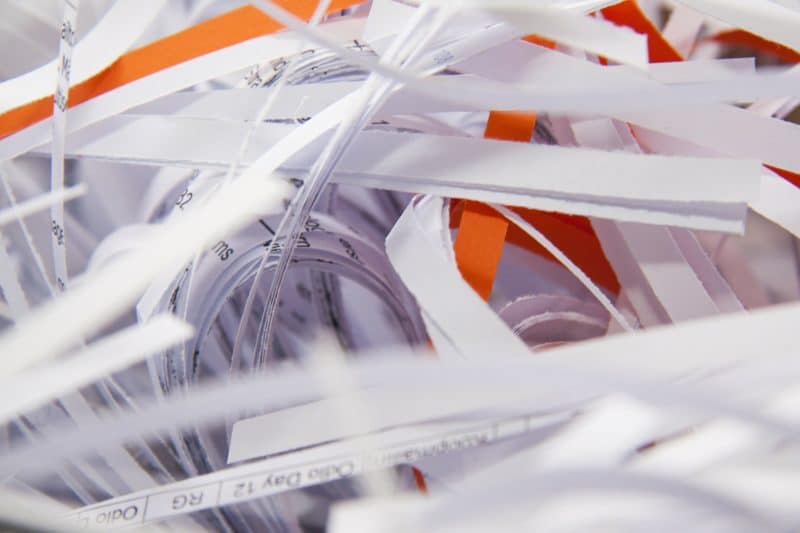
Whether you work at home or not, chances are you have a stash of business documents you no longer need. From bills to business documents to tax records, this paperwork is likely just sitting around taking up space.
Yes, you must keep your Revenue Canada income tax and business-related records for at least six years from the time you submitted – and in certain cases, even longer. But if you have boxes or cabinets of documents older than that, now is a great time to go through them and decide what you can let go of.
Be sure to recycle any non-sensitive paperwork, like out-of-date articles or information. However, if you have any confidential business documents you no longer need, you will want to shred them. Here are some options for you:
Home Shredders or Drop-off Shredding Services
For small amounts of paper, portable shredders work well. However, if you have a lot of paperwork and don’t want to burn out the motor on your home shredder or spend hours feeding paper into the machine, consider a drop-off shredding service. See our Resources for more information.
On-site or Off-site Shredders
For larger amounts of paper, a variety of companies also provide on-site shredding or will pick up materials at your residence or business for off-site shredding. Some of these organizations will also provide hard drive and electronic media destruction services – very handy if you’re ready to tackle more than just paper. We list some shredding companies on our Resources page.
Community Shred Days
Urban Impact hosts community shred days for small businesses or homeowners. They partner with a local organization to provide a mobile shredding truck in your community. On these Community Shred Days, they shred your documents right in front of you. Best thing? You pay what you can afford, and the proceeds go to charity. Check out the dates and locations for upcoming Community Shred Days.
Since we’re all concerned about privacy, shredding your confidential business documents is the safest option. So let’s go dust off those boxes and get started!
Get free clutter control tips from a professional organizer direct to your inbox! Sign up for my newsletter today!
Image by Stefan Schweihofer from Pixabay.

On June 10th 2017 there is a Spring Shred-for-Seniors Event in Langley. Shred by donation! 10am-2pm at 20605 51B Avenue, Langley. More info here http://lsrs.ca/event/2017-spring-shred-for-seniors-event/
Dawn – appreciate the Langley reference for a shredding event. Urban impact’s shredding days did not include this area, so now our Langley readers have a resource. Thank you!
Linda, a month after moving in, I’m still sorting and tossing stuff.
What items of paper would you recommend that I keep? I have my tax records, medical and immediate documents filed, some of which I will transfer to a safety deposit box – birth and other similar records, will, property deed, etc.
I’ve emptied photos and old articles. So, do I keep report cards, certificates of graduation, resumes, etc.?
I’m 74-plus years old and am retired (almost 20 years), and don’t think I would need such documentation.
Thanks.
Hi Nettonya,
Business records, unless these are tax related records such as sources of income or expenses, these can typically be shredded/recycled, if beyond their 6/7 year holding period. Records regarding personal historian purposes are at your discretion, some of which may be scanned for volume and accessibility in a digital format. You could edit down personal items and just save very favourite ones. Place them in a nice keepsake box or album on a shelf, rather than hidden away in a closet. It’s nice to have historical references, although they can take up a lot of living space.